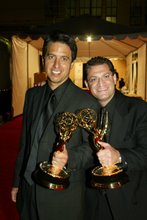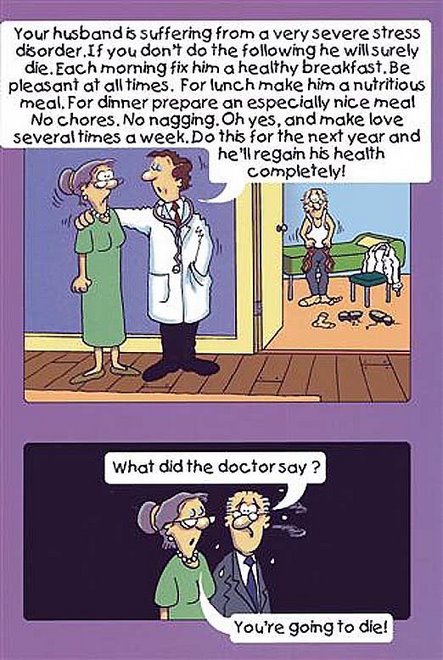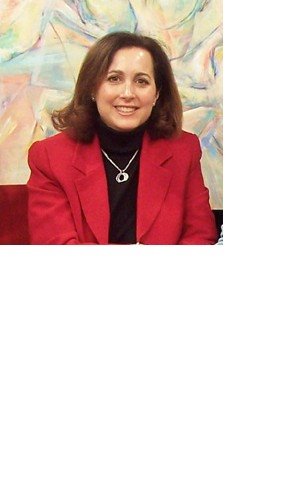
Whoa!
Okay, so I didn't ride Austin the Wonderhorse out on the farm last week. But I did learn alot from Horse Whisperer Tim Hayes and his equestrian clinic. So as soon as I find a stallion.....
Anyway, bottom line: horses are like people. Show 'em love, trust and respect and they'll take you on a fun ride. Otherwise you might just get bucked.



Here's an outtake that landed on the editing floor:
Horses are natural followers, Mr. Hayes said, and seek a leader to look after them and protect them from predators.
“Horses are afraid of only one thing: getting eaten,” he said. “They are not afraid of getting divorced. They are not afraid of low bank accounts.” Once horses know they are safe, they are comfortable and happy.
Here's the rest of the story from The New York Times.
Don’t Just Ride Horses, He Says: Get to Know Them
Brentwood
TIM HAYES, 62, didn’t get on a horse until he was 48.
He was recently divorced, and vacationing in Idaho, when some friends took him on a trail ride. The champion roping horse he rode was smooth and fast, and Mr. Hayes was hooked.
“Before that time, I thought to be a good rider meant that the person had to know everything,” he said. “I didn’t realize that it was also the horse.”
Mr. Hayes decided to learn more about horses. For the next three years, whenever he had a break from his work in Manhattan as a producer and screenwriter for television commercials, he returned to the cattle ranch.
Cowboys taught him to rope and brand. Comparing himself to Clark Gable’s aging cowboy in “The Misfits,” Mr. Hayes said he was set to go the traditional “rough, tough” route and become a horse breaker. “I was going to be real macho,” Mr. Hayes recalled.
After reading a newspaper article about a gentler way of training horses, he began to wonder what the horses felt and thought when riders climbed on their backs. Over the next few years he sought out master horsemen in Colorado and California and studied natural horsemanship, a kinder method of training and riding horses based on mutual trust and respect rather than force.
“It is not just about riding horses,” said Mr. Hayes, who once considered a career in psychiatry. “It is about communicating; it is about helping horses that have problems.” To do that, he had to understand the way horses, who are herd animals, communicate with other horses through body language and touch, he said.
Back in Manhattan, where he lived at the time, he began giving lessons in 1997 at the Chelsea Equestrian Center and worked as a trail guide at Deep Hollow Ranch in Montauk on weekends.
Horse owners and riders started calling him for advice. He started making barn calls and giving clinics and lessons. After his mother died in 2003, he decided to change his life, closed his film business, moved to Easthampton full time and became a self-described horse whisperer.
“Natural only means what is natural for horses, not what is natural for people,” Mr. Hayes said on a recent afternoon here, giving a clinic with his 18-year-old quarter horse, Austin the Wonderhorse, for 25 equestrians in the indoor riding barn at Knoll Farm, a horse farm that specializes in dressage. “Most people make horseback riding convenient for themselves without taking into consideration the horse.”
Mr. Hayes said a rider’s relationship with his horse should encompass love, trust and respect.
“A relationship is not just physical; it is mental and emotional,” Mr. Hayes said. “If they don’t have the three things the relationship will not work.”
Horses are natural followers, Mr. Hayes said, and seek a leader to protect them from predators.
“Horses are afraid of only one thing: getting eaten,” he said. Once horses know they are safe, he said, they are comfortable and happy.
The horse trainer also works with riders on their fears, advising them to feel secure before mounting. “It’s a little too late when you get on a horse’s back to find out they won’t stop,” he said.
Gentleness is paramount.
“A fly lands on a horse and it makes him move, right?” Mr. Hayes said, standing in the corral and making Austin turn, trot, canter and gallop at the slightest touch. “I never have to be firmer than a fly.”
Riding is the icing on the cake. “That’s true intimacy between human and horse,” Mr. Hayes said. “It’s like dancing; you want a wonderful partner that you already feel comfortable with.”
The principles of good riding are the same for English-style dressage and Western-style reining, he added.
Mr. Hayes saddled Austin without putting him in crossties. He uses a rope halter instead of a bit, making the horse move by shifting his body weight forward and back, right and left.
Horses, Mr. Hayes said, have qualities like tolerance, patience and kindness that “a lot of us, including me, lost along the way.”
“If I try to be more like a horse, not only will my relationship and my riding get better, but I am going to become a better person, too,” Mr. Hayes said.










